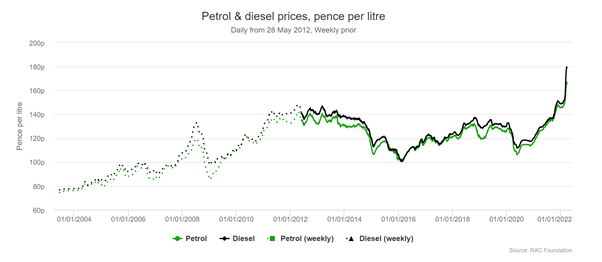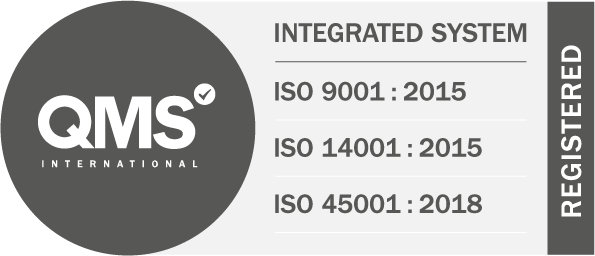10 great ways to keep your fuel costs under control
Fleet fuel bills have soared this year as pump prices have leapt to record highs. In a bid to keep costs under control, simple solutions could reap the biggest benefits, as our guide shows below
After years of economic turmoil, companies don’t have money to burn, but with fuel prices soaring valuable profits could be going up in smoke.
Pump prices have leapt to record levels during 2022 and experts fear this is more than a short-term shock, with petrol and diesel costs remaining high despite recent government cuts in fuel duty.

The crisis has prompted growing interest in electric vehicles, but what actions can fleet managers take now that could reduce fuel costs by tomorrow?
A range of simple checks and solutions could reap valuable rewards by improving fuel consumption and reducing spending.
Some of these initiatives relate to the driver and some to the vehicle, but together they offer a toolkit to cut costs and keep a fleet operating efficiently.
Our top 10 tips to reduce fuel costs
1. No need to speed
Speeding gets you nowhere fast. Drivers may feel like they are making progress with fast overtakes and pedal to the metal driving, but it will do little to increase the average speed of a journey. The benefits of an hour’s speeding can be wiped out by a few seconds at a traffic light. Educating and encouraging drivers not to speed can pay dividends. For example, on the motorway, driving at 70mph instead of 80mph uses 25% less fuel and keeps the driver’s licence safe. If you persuade employees to ‘drive at 65’, then you can reduce fuel use by 30% or more, without impacting average journey times, particularly as employees spend less time at the fuel pump.
2. Smooth operator
The way you get to cruising speed is just as important as the speed itself. Fast acceleration can double fuel use compared to smooth driving. A vital element is planning ahead, so drivers don’t accelerate quickly just to reach the back of a stationary queue of traffic, which is pointless and expensive. Drivers need to accelerate gently and review the road ahead, adjusting their speed to the conditions so they maintain momentum instead of constantly slowing down and speeding up.
3. Under pressure
Each year, drivers waste millions of pounds because incorrectly inflated tyres are harming their fuel economy. Estimates suggest as many as two-thirds of vehicles could have incorrect tyre pressures. Typically, running tyres at the correct pressure can reduce fuel costs by anything between 2-10%.
4. Road to nowhere
Congestion is a fuel economy killer, so drivers need to know before they go that their journey will progress as planned. Most sat-nav systems provide updates on congestion and delays, so it pays to check for every journey, even if it is one that has been done many times before. A diversion may take a slightly longer route, but it could save drivers from being stuck for hours in nose to tail traffic. Companies can also cut fuel costs by planning each day so that jobs are listed in the most efficient order for drivers to reduce mileage.
5. Switch on to switching off
If you are parked, there shouldn’t be a spark. Avoiding idling with an engine-off approach can significantly reduce wasted fuel and protect the environment. Drivers may think a few minutes idling isn’t a problem, but over a month it can add up to hours of engine time and, across a fleet, hundreds of litres of fuel can be burnt needlessly.
6. Weight watchers
A van is designed to carry cargo, but companies should consider what they are gaining from all that weight. Could they save pounds by trimming a few pounds? Is the equipment used often, or is there a forgotten item in the payload that is adding unnecessary weight and cost? Getting rid of excess weight is a great and immediate way to reduce fuel costs.
7. Path of least resistance
In some cases, it is essential that equipment is carried on the outside of the vehicle, but companies need to consider whether this is always the case. An engine has to work harder to push a roof rack and any equipment it carries through the air. If equipment is needed, then slowing down will help, but if drivers are attending jobs where the items on the roof aren’t essential, they could either be removed and stored or they could use an alternative vehicle. Manufacturers are also releasing more aerodynamic roof racks that reduce drag and, in turn, fuel use.
8. Under the hood
Fleets can spend to save with regular servicing. Not only does it avoid breakdowns, but oil and filter changes reduce wear and tear on the engine and keep it efficient. Drivers may only see a small fuel economy improvement, but over thousands of miles, the savings start to add up. Customers of Reflex Vehicle Hire have the benefit of regular servicing from our expert team, while our mobile servicing experts will come to your drivers, so they don’t need to lose time taking vehicles to the garage.
9. Competition time
The simplest ideas are often the best when it comes to saving money. A small prize-linked to a fuel economy league table can have an immediate impact as drivers compete to be the best on the board. As the aim is to reward good behaviour, the key is to focus on praising the best, not punishing the worst, who can be encouraged to improve with guidance and training so they can move further up the table in future.
10. Train to gain
Regular training is one of the best investments a company can make. This doesn’t have to involve the expense of taking drivers out on the road, as online courses can be just as helpful in providing hints and tips that drivers can take with them when they next go out. So-called ‘toolbox talks’ can also have an impact. The short sessions allow managers to provide advice and guidance, while drivers can share their own ideas.
Reduce Fleet Fuel Costs with Reflex
To learn more about how Reflex Vehicle Hire can keep your fuel costs under control, ranging from improved insights using telematics to introducing electric cars and vans, speak to a member of our award-winning team.
Share to:
Find out more
Find out how Reflex Vehicle Hire can help your company.
Call 0330 460 9913 or visit our contact us page.








@2x.png)

